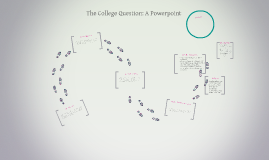essential question powerpoint
Transcript: Essential question powerpoint By: Erin Temple I Psychological disorders Psychological disorders, also known as mental illnesses are disorders that effect a persons mental health which includes changes in the way a person thinks, their emotions, and their behavior. A person may get a psychological disorder through their genes or it can come from the environment in which one lives in. Are psychological disorders influenced more by genetics or by a person's environment? II Psychological disorders in the US As of 2015, around 25% of adults in the United States have some sort of psychological disorder, and around 13% percent of children in the United States are diagnosed with a psychological disorder each year. In 2015, over 10% of the population in the US had depression, 9-11% had signs of ADHD III Causes of psychological disorders: Environmental factors IV There are many things that can cause a psychological disorder; trauma (such as abuse or loss of a loved one, natural disasters can even contribute), emotional harm (bullying), and substance abuse (which can also help aid in addiction and lead to substance abuse) are all environmental factors that contribute to psychological disorders. Causes of psychological disorders: Genetic factors Genetic factors that play a role in a person having a psychological disorder are epigenetic regulation (this contributes to how a person reacts to something in their environment), genetic polymorphisms, and single gene changes also contribute to physological disordes. V VI Genetics If a member of your family has a certain psychological disorder, your risk of getting it increases, however it may skip generations. Genetic polymorphisms will not lead to a psychological disorder on their own but with the added stress from something in the environment, it may aid in it. Epignetic regulation determines how someone reacts to something in the environment that may lead to a disorder, it depends upon how someone reacts to the stimuli in their environment. Schizophrenia and Depression Researchers believe that schizophrenia has a strong genetic component. If a set of identical twins are born and one twin has schizophrenia there is a 45%-60% chance that the other twin also has it. Genetic contribution to depression is around 30%-40%. However, with both schizophrenia and depression, environmental factors also play a role in their development. VII The environment Scientist define the environment as everything except genes. Things in the environment that can lead to the devlopment of a disorder are stressors, such as a breakup or the loss of a loved one or something that may cause a negative emotional reaction. VIII If a family member has a psychological disorder are they guaranted to pass it down? IX Most pyschologial disorders have an evironmental trigger. If someone in your family has a psychological disorder it does make you more susceptible to that disorder, but their is no guarante that you will have that disorder. Psychological disorders can also skip over generations. chart X Conclusion XI In the factors that contribute to a person obtaining a psychological disorder, the environment in which they are in plays a bigger factor than genetics. There is no guarantee that you may inherit a disorder, it increases a person's chance in getting the disorder if their parent or grandparents have it, but their is usually an enironmental trigger that causes the person to show symptoms of the underlying disorder. Some disorders such as schizophrena might not have a trigger, the symptoms just begin to appear as someone ages. Slides 1-6 “Inheriting Mental Disorders.” HealthyChildren.org, 21 Nov. 2015, www.healthychildren.org/English/health-issues/conditions/emotional-problems/Pages/Inheriting-Mental-Disorders.aspx. Slide 7 “Unite For Sight.” Causes of Psychological Disorders, www.uniteforsight.org/mental-health/module4 Slides 8-11 Schmidt, Charles W. “Environmental Connections: a Deeper Look into Mental Illness.” Environmental Health Perspectives, National Institute of Environmental Health Sciences, Aug. 2007, www.ncbi.nlm.nih.gov/pmc/articles/PMC1940091/. Does Mental Illness Run in Families?, www.rethink.org/advice-and-information/carers-hub/does-mental-illness-run-in-families/. citations

















